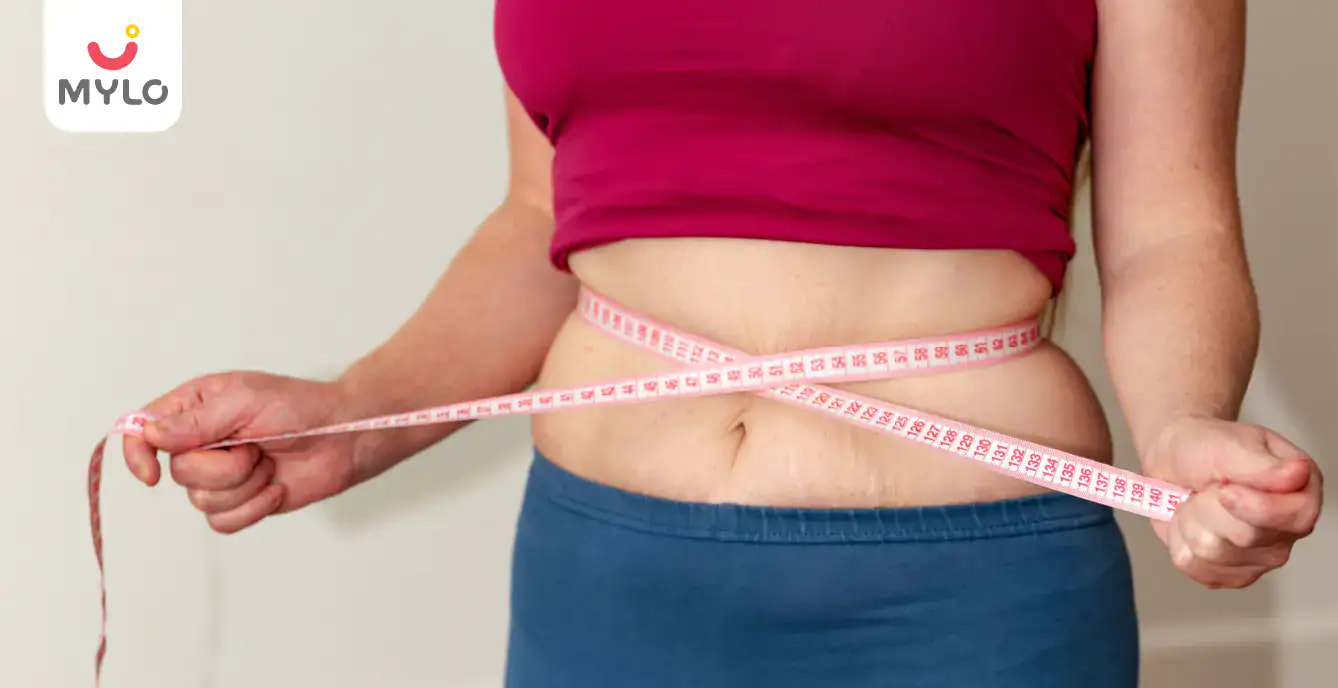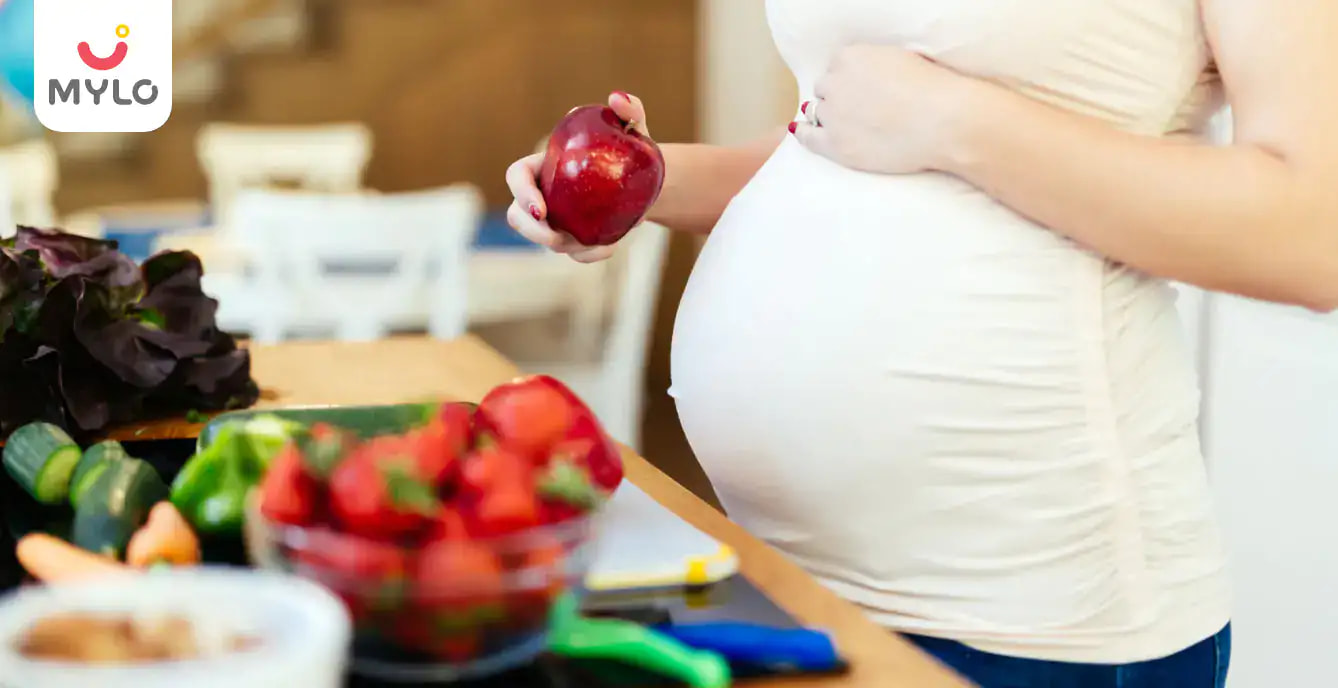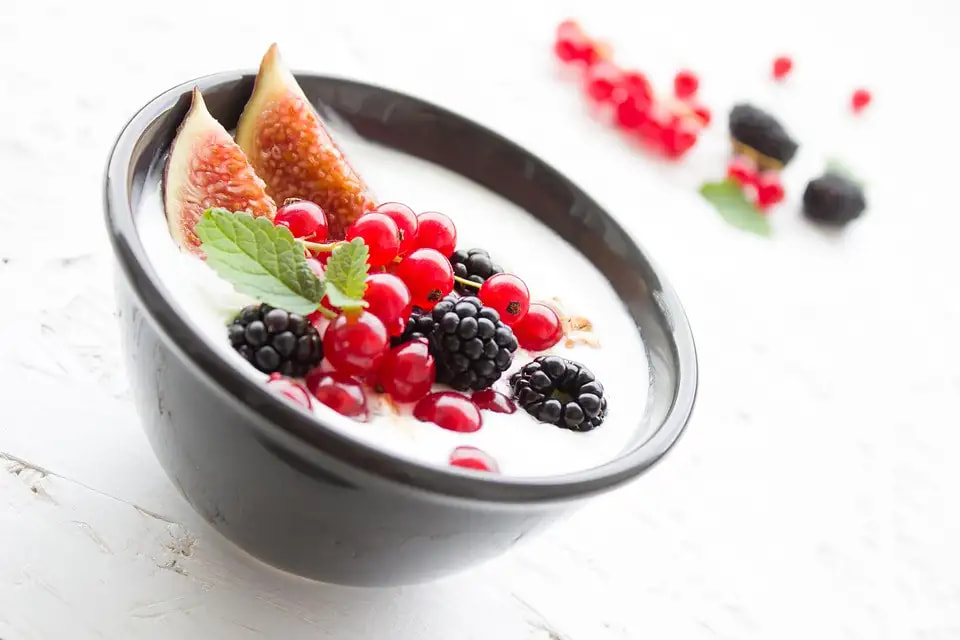Home

Weight Loss

Postpartum Diet Plan: Your Postpartum Nutrition Guide
In this Article
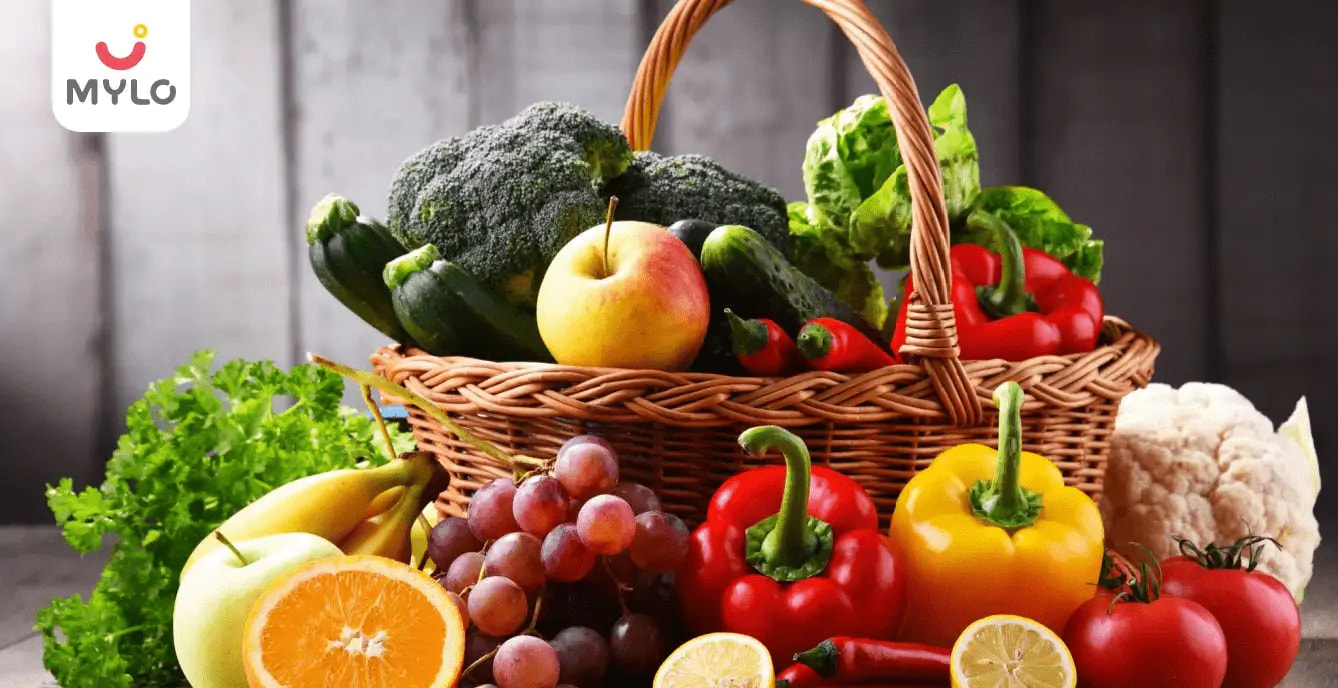
Weight Loss
Postpartum Diet Plan: Your Postpartum Nutrition Guide
Updated on 27 February 2024
Eating a nutritious diet postpartum is just as important as it was during pregnancy. By consuming a healthy postpartum diet, you can speed up your recovery after childbirth. And if you are breastfeeding, the food you eat will help your baby grow healthy and strong. Additionally, with the right diet and exercises, you can also shed any pregnancy pounds you may have gained on your pregnancy journey.
In this article, we will discuss the importance of postpartum diet, foods to include and avoid in your diet and a postpartum weight loss diet.
Why Is Postpartum Diet So Important?
The food you eat during postpartum plays a great role in determining your and your baby’s health, recovery and weight loss. Here are some reasons why postpartum diet is so important:
- Supports internal healing and quick recovery from childbirth
- Helps boost breast milk production and refine its composition
- Helps to maintain mental health and energy levels
- Affects the production and secretion of hormones in the body
- Helps in the weight loss journey
Postpartum Nutrition Guide
Here is a list of foods you should include in your postpartum diet:
1. Vegetables
Try to include as many fresh and seasonal vegetables in your diet as you can. Vegetables contain essential vitamins and minerals that your body needs to keep you healthy. Additionally, they contain fiber which can help prevent constipation. Just make sure to wash them thoroughly before cooking.
2. Fruits
Fresh fruits will continue to be your friend during the postpartum period as well. Rich in vitamins, minerals and fiber, fruits help to maintain good health and keep up energy levels. You can consume them raw after a good wash or in the form of fresh juice.
3. Whole Grains
Whole grains are higher-quality sources of carbs and energy that you must include in your postpartum diet. Try to include whole grain breads, cereals, crackers, and pasta in your diet. They are a great source of fibre, carbs and energy.
4. Protein
Foods rich in protein are essential to help you recover from childbirth and provide body strength. You can get your daily protein from lentils, peas, nuts, seeds, eggs and lean meat along with nutrients like iron, zinc, iodine and vitamins.
5. Fiber
Many women suffer from constipation in the days following their delivery. Eating foods rich in fiber such as beans, broccoli, apples, avocados, whole grains and dry fruits can help normalise your bowel movements and achieve a healthy weight.
6. Choline
Choline is a nutrient similar to folic acid and is essential for the brain development of your baby. Including choline in your postpartum diet can also help boost your maternal health, improve immune function and intestinal health.
7. Iodine
Several women may suffer from fluctuations in their thyroid levels after pregnancy, which increases their risk of postpartum hyperthyroidism. Consuming iodine-rich foods can help normalise your thyroid function while supporting healthy baby development.
8. Low-Fat Or Fat-Free Dairy
Dairy products are rich sources of protein and Vitamin B. They also contain calcium, which is great in the bone development of your baby. Try to consume at least 3 servings of milk, yogurt or cheese to grow your baby’s bones and keep yours strong.
9. Omega-3 Fatty Acids
Omega-3 fatty acids are great for your baby’s brain development and immune system. Additionally, consuming foods rich in Omega-3 fatty acids or its supplements may help reduce the risk of postpartum depression in new moms.
10. Vitamin D
Vitamin D is a super nutrient that helps improve immunity, mental health, bone health and thyroid health. If you are deficient in Vitamin D or can’t get it from natural sources, it’s important to consume Vitamin D supplements to maintain your overall health and body function.
11. Plenty Of Liquids
You should drink at least 3 litres of water after delivery. Staying hydrated, especially if you are breastfeeding, is crucial. You can also add fennel seeds, cardamom or ajwain to lukewarm water as it will also aid in your baby’s digestion.
Food To Avoid
While there are several foods that you should add to your postpartum diet, here are some foods you must avoid during postpartum:
1. Junk Food
It’s vital for you to avoid eating junk and processed foods like soda pop, cookies, donuts, potato chips and french fries, especially if you’re breastfeeding.
2. Alcohol
Any alcoholic drinks you consume can pass to your baby through breastmilk and can harm their body and brain development. So, steer clear of alcohol as long as you’re breastfeeding.
3. Caffeine
Caffeine is a type of stimulant that can pass to your baby through breastmilk and affect their growth. So, avoid consuming drinks like tea, coffee, soft drinks and chocolate and over-the-counter medicines.
You may also like: How to reduce post-partum belly fat naturally?
Postpartum Weight Loss Diet
You can accelerate your postpartum weight loss by following a postpartum weight loss diet and following the below guidelines:
1. Breastfeed If You Can
Besides providing essential nutrients to your baby, breastfeeding can be one of the most effective ways to help you recover from childbirth and lose your pregnancy weight. It will help your body burn calories and eliminate any extra fluid in your body.
2. Monitor Your Calorie Intake
You don’t want to diet right now but cutting back a little on calories can help you reduce weight. Try to avoid sugary drinks, eat smaller portions and choose healthy snacks in your postpartum weight loss diet.
3. Consume High Fibre Food
Try to consume fibre-rich foods in your postpartum weight loss diet to keep your weight in check. Whole grain foods, fruits and vegetables are all excellent sources of fibre so be sure to include them in your daily diet.
4. Have Healthy Proteins
Consuming a high-protein diet can help accelerate your postpartum weight loss. So, as you recover after childbirth, try to include healthy proteins like lean meats, soy, beans, eggs and nuts to boost your metabolism and lose weight.
5. Avoid Added Sugar and Refined Carbs
Foods with added sugar and refined carbs like white flour, white bread, pastries, pastas and desserts can lead to more weight gain. So, try avoiding such foods and opt for healthy snacks and sweets instead.
6. Avoid Processed Food
Processed foods are high in sugar, salt, fat and calories and must be avoided at all costs. Consuming processed foods frequently can set you back on your postpartum weight loss journey.
You may also like: Dieting Postpartum: 7 Safe Ways to Lose Baby Weight After Pregnancy
Final Thoughts
It’s important for you to set your priorities right on your postpartum journey. First comes healing and recovering from childbirth and then, comes postpartum weight loss. Following a healthy postpartum diet can help you with both.



Written by
Anupama Chadha
Anupama Chadha, born and raised in Delhi is a content writer who has written extensively for industries such as HR, Healthcare, Finance, Retail and Tech.
Read MoreGet baby's diet chart, and growth tips

Related Articles
Related Questions
Influenza and boostrix injection kisiko laga hai kya 8 month pregnancy me and q lagta hai ye plz reply me

Hai.... My last period was in feb 24. I tested in 40 th day morning 3:30 .. That is faint line .. I conculed mylo thz app also.... And I asked tha dr wait for 3 to 5 days ... Im also waiting ... Then I test today 4:15 test is sooooo faint ... And I feel in ma body no pregnancy symptoms. What can I do .

Baby kicks KB Marta hai Plz tell mi

PCOD kya hota hai

How to detect pcos

Related Topics
RECENTLY PUBLISHED ARTICLES
our most recent articles

Care for Baby
The Ultimate Guide to Crafting the Perfect Baby Photoshoot
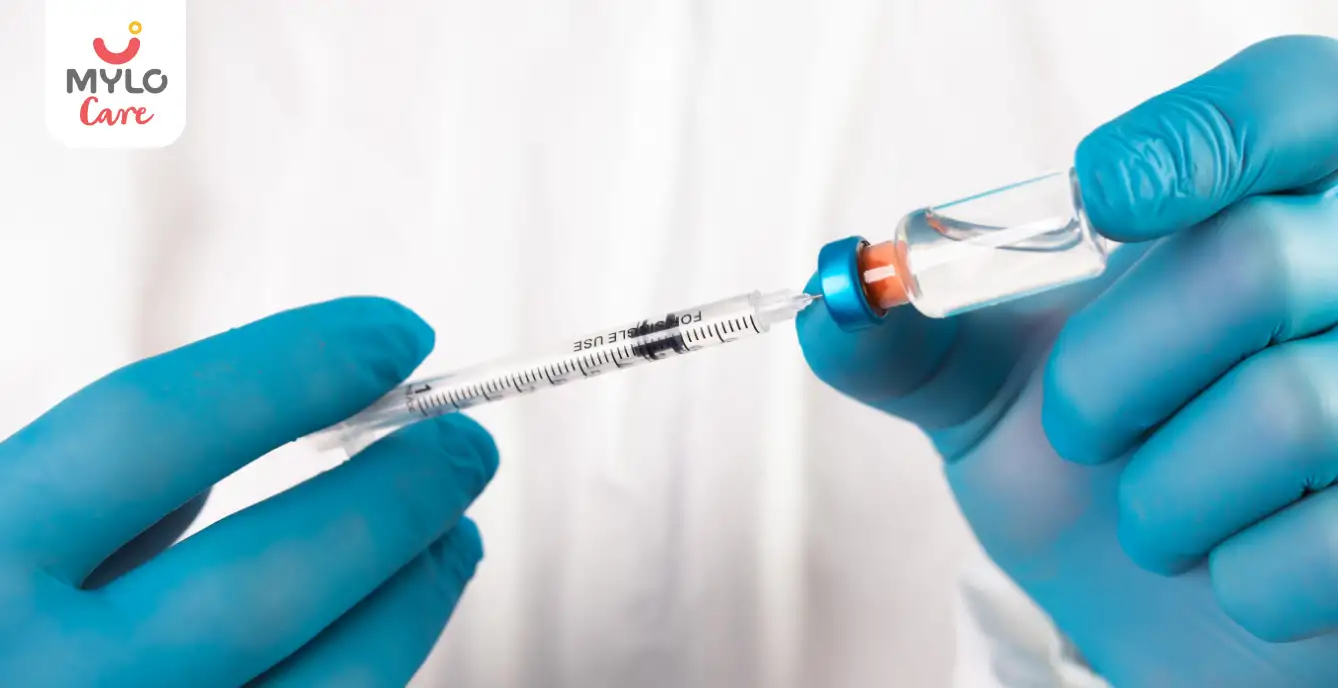
Medications
Lupride Injection: How It Works and What You Need to Know
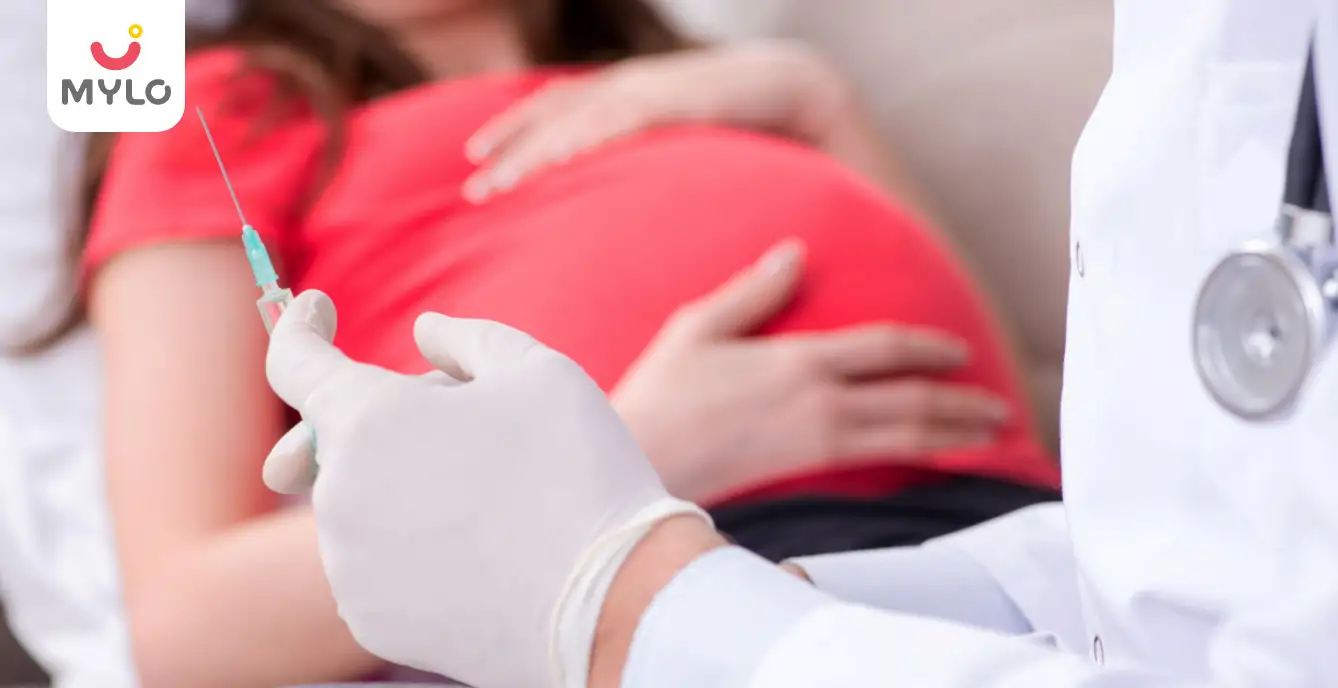
Hormones
Why are Some Women Recommended HCG Injection During Pregnancy?
Sudden Infant Death Syndrome
Sudden Infant Death Syndrome (SIDS): Meaning, Causes & Prevention

Periods
Period After Abortion: What to Expect About Timing, Duration and Frequency
Daily Care Tips
Thumb Sucking: How to Help Your Child Break the Habit
- The Ultimate Guide on How to Shrink Ovarian Cysts Naturally
- Ashwagandha Benefits for Female & Male Fertility: How This Ancient Herb Can Help You Conceive
- What are the 12 things that parents can do with their baby in the first 12 months?
- The Lowdown on Cetirizine in Pregnancy: A Must-Read for Expecting Moms
- The Ultimate Collection of Paheliyan with Answer for Kids
- The Ultimate Guide to Abdominal Pain After Abortion Causes and Care
- Ovulation Kit 101: A Beginner's Guide to Tracking Fertility & Maximizing Your Chances of Conception
- Is Breast Pain after Abortion Normal? What You Need to Know
- Twin Pregnancy: Signs, Types & Risks
- Chasteberry Benefits: The Natural Remedy You Need for Infertility, Hormonal Imbalance, and PMS
- The Ultimate Guide to Planning the Perfect Baby Shower
- 50+ New Born Baby Wishes to Congratulate New Parents
- First Period After C Section: How Long Does It Last
- Introducing Solid Foods to your 6-month-old Baby? Here is a complete Food Chart along with some Nutritious Recipes


AWARDS AND RECOGNITION

Mylo wins Forbes D2C Disruptor award

Mylo wins The Economic Times Promising Brands 2022
AS SEEN IN

- Mylo Care: Effective and science-backed personal care and wellness solutions for a joyful you.
- Mylo Baby: Science-backed, gentle and effective personal care & hygiene range for your little one.
- Mylo Community: Trusted and empathetic community of 10mn+ parents and experts.
Product Categories
Baby Carrier | Baby Soap | Baby Wipes | Stretch Marks Cream | Baby Cream | Baby Shampoo | Baby Massage Oil | Baby Hair Oil | Stretch Marks Oil | Baby Body Wash | Baby Powder | Baby Lotion | Diaper Rash Cream | Newborn Diapers | Teether | Baby Kajal | Baby Diapers Pants | Cloth Diapers | Laundry Detergent | Lactation Granules |



